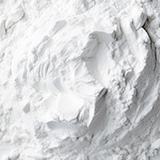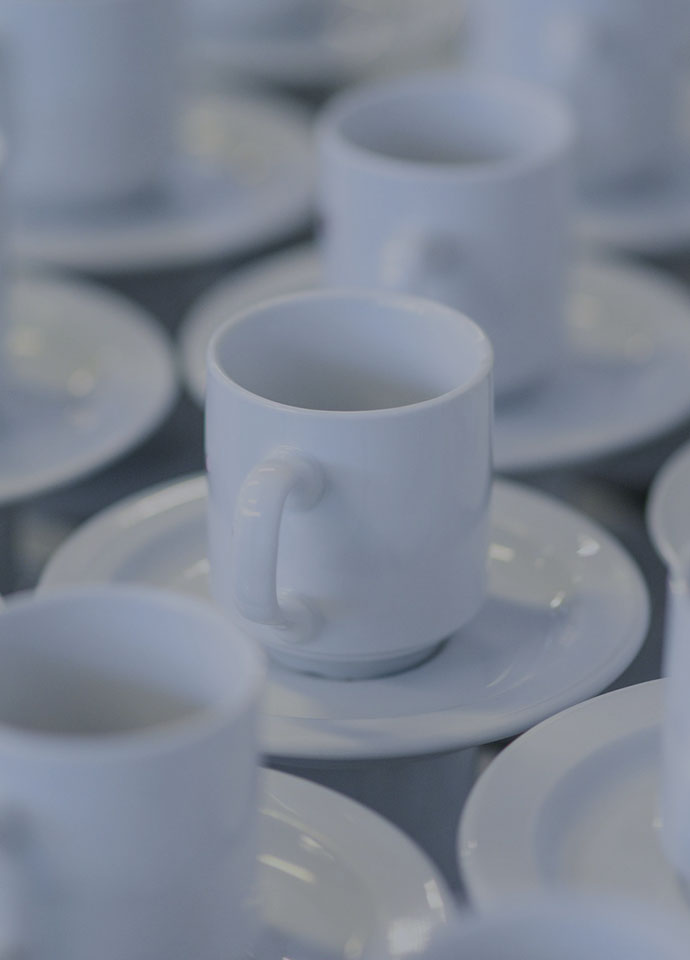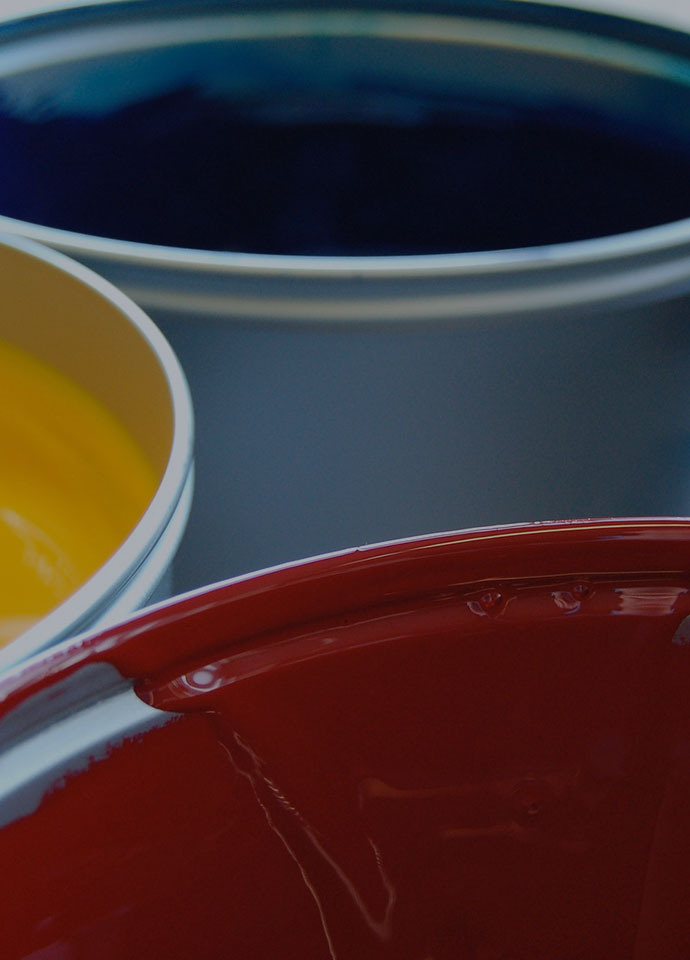

Kaolin is a clay mineral, part of the group of industrial minerals with the chemical composition Al2Si2O5(OH)4. It is a layered silicate mineral, with one tetrahedral sheet of silica (SiO4) linked through oxygen atoms to one octahedral sheet of alumina (AlO6) octahedra. Rocks that are rich in kaolinite are known as kaolin or china clay.
The limestone is fed into the bucket elevator and subsequently transported to the raw material warehouse for grinding.
After grinding, the finished products are gathered by powder concentrator, and then conveyed to a screw conveyor.
The finished products are transported to the storage warehouse, while the excess gas is filtered by the dust collector.
The whole system is equipped with three pulse dust collectors to guarantee that the whole system is free of dust leakage.
The system is outfitted with an intelligent PLC control cabinet and an upper computer.
The system is equipped with an intelligent PLC control cabinet and an upper computer.
The primary use of kaolin is in the paper industry. It serves as a paper coating which improves appearance by contributing to brightness, smoothness and gloss. It also improves printability. Additionally, it is used by the paper industry as a filler reducing cost and the use of tree-based resources.
Kaolin Powder for Paper Making Industry Standard(GB/T14563-2008)
| Item | ZT-0A | ZT-0B | ZT-1 | ZT-2 | ZT-3 |
| Whiteness | ≥ 88% | ≥ 87% | ≥ 85% | ≥ 82% | ≥ 80% |
| < 2μm Content | ≥ 92% | ≥ 85% | ≥ 80% | ≥ 75% | ≥ 70% |
| 45μm Residue Rate | ≤0.005% | ≤0.04% | ≤0.04% | ≤0.05% | ≤0.05% |
| PH Value | ≥ 4 | ||||
| Viscosity Concentration(500 mPa.S) | ≥ 70% | ≥ 66% | ≥ 65% | ≥ 65% | ≥ 60% |
| LOI | ≤15% | ||||
| Al2O3 | ≥ 37% | ≥ 37% | ≥ 36% | ≥ 35% | ≥ 35% |
| Fe2O3 | ≤0.60% | ≤0.60% | ≤0.70% | ≤0.70% | ≤1.0% |
| SiO2 | ≤48% | ≤48% | ≤49% | ≤50% | ≤50% |

Many people are under the mistaken impression that the only use for kaolin is in the manufacture of china. This is not true, and its use by the paper industry far exceeds its other uses. However, kaolin still serves as a valuable component in china and other tablewares. Its color, gloss and hardness are ideal characteristics for such products.
Kaolin Powder for Ceramic Industry Standard(GB/T14563-2008)
| Item | TC-0 | TC-1 | TC-2 | TC-3 |
| 1280℃ Burnt Whiteness | ≥ 90% | ≥ 88% | - | - |
| Residue Rate | ≤1% (45μm) | ≤1% (45μm) | ≤1% (63μm) | ≤1% (63μm) |
| Al2O3 | ≥ 35% | ≥ 33% | ≥ 32% | ≥ 28% |
| Fe2O3 | ≤0.40% | ≤0.60% | ≤1.20% | ≤1.80% |
| TiO2 | ≤0.10% | ≤0.10% | ≤0.40% | ≤0.60% |
| SO3 | ≤0.20% | ≤0.30% | ≤0.80% | ≤1.00% |

The bonds between the kaolin and the polymers provide enhanced mechanical strength, improved impact and flex strength, and a high degree of hydrophobicity. Kaolin also acts as a titanium dioxide extender, which means less of the expensive additive is needed to yield sharper colors. In rubber, kaolin performs as a processing aide, giving the material dependable curing rates and increased strength with better resistance to tears and abrasions.
Kaolin Powder for Rubber Industry Standard(GB/T14563-2008)
| Item | XT-0 | XT-1 | XT-2 | |||
| Whiteness | ≥ 78% | ≥ 65% | - | |||
| Moisture | ≤1.5% | |||||
| 125μm Residue Rate | ≤0.02% | ≤0.02% | ≤0.05% | |||
| PH Value | 5.0~8.0 | |||||
| Diphenylhydrazine | 6.0%-10.0% | 6.0%-10.0% | 4.0%-10.0% | |||
| sorption Rate | ||||||
| Mn | ≤0.1% | |||||
| Cu | ≤0.005% | |||||

Kaolin also offers increased opacity and tint strength, stain and scrub resistance, improved pigment suspension, sheen control and improved holdout.
Kaolin Powder for Paint Industry Standard(GB/T14563-2008)
| Item | TL-1 | TL-2 | TL-3 |
| Whiteness | ≥ 85% | ≥ 82% | ≥ 78% |
| 45μm Residue Rate | ≤0.05% | ≤0.10% | ≤0.20% |
| 10μm Residue Rate | ≤10% | ≤20% | ≤30% |
| PH Value | 5.0~8.0 | ||
| Al2O3 | ≥ 35% | ||
| SiO2 | ≤50% | ||

If you would like to receive personalized solutions and a free quote, kindly provide your information below.